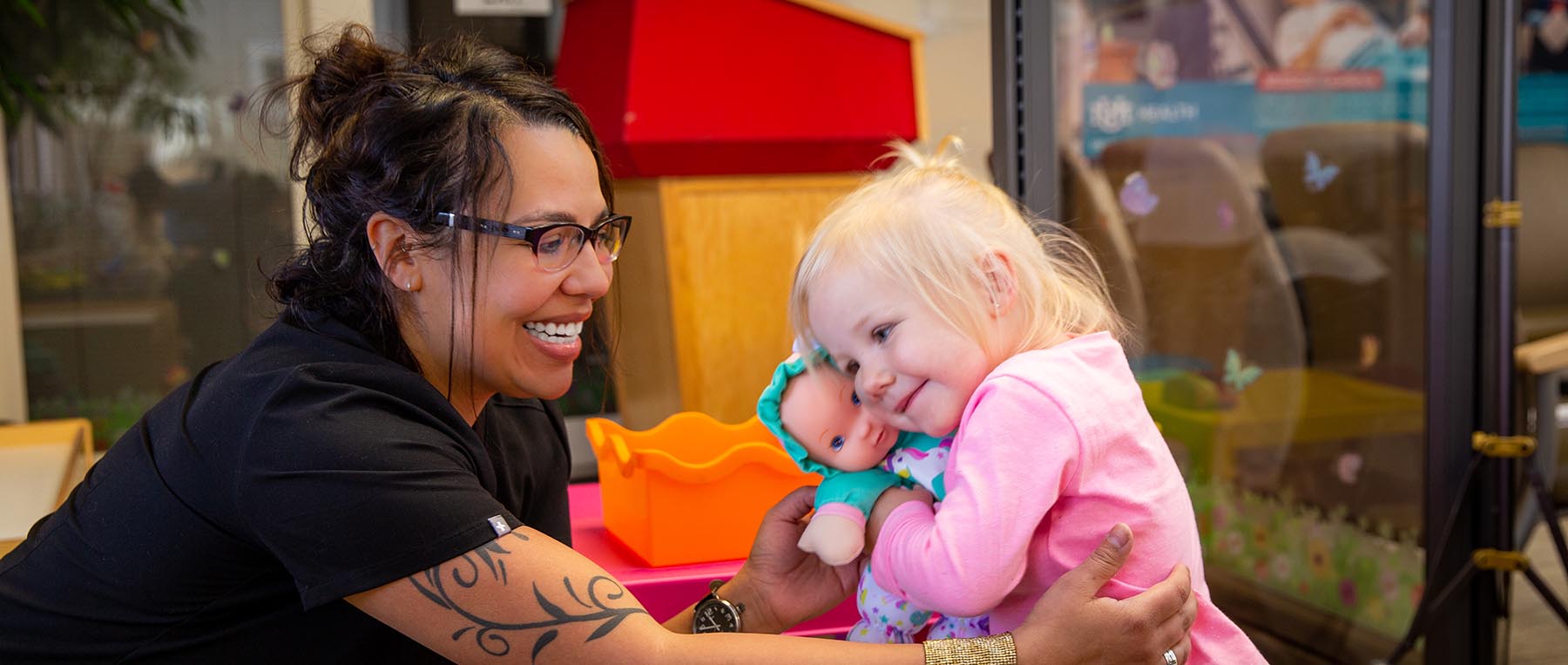As all parents know, when a child can’t sleep, the whole family doesn’t sleep well. Occasional sleep disturbance is normal, but when bedtime restlessness becomes more than a once in a while occurrence, it might be time to see a sleep medicine physician.
Sleep and neurology are closely related fields of medicine, as sleep is often considered part of the autonomic nervous system, a bodily function that happens without conscious thought. Left untreated, disrupted sleep in children can cause long-term, negative health impacts such as:
- Depression and anxiety
- Diabetes
- Hypertension
- Immune system deficiency
- Developmental delays
- Learning difficulties
- Behavioral problems
The cause of a child’s sleep troubles could be as simple as drinking too much caffeine, environmental stimuli such as having too much (or too little) light or noise in their bedroom, an irregular sleep schedule, or too much screen time in the evening. However, more than 100 sleep disorders can affect children, including insomnia, obstructive sleep apnea (OSA) and restless legs syndrome. And there is often overlap with underlying conditions such as allergies, anxiety, ADHD, or asthma.
So, our sleep medicine providers and fellows work closely with colleagues from pediatrics and other specialties to determine the source of sleep disturbances.
We see patients at two clinics—the Sleep Disorders Center and the Carrie Tingley Outpatient Clinic via pediatric neurology. UNM Health Sciences Center is home to the first comprehensive sleep center in New Mexico, we’ve been seeing young patients since 1983. Today, we’re training the next generation of sleep medicine fellows.
Together, our sleep medicine physicians, fellows, and specialty colleagues build personalized treatment plans to help each patient get better sleep. It all starts with understanding the factors contributing to poor sleep.
How We Diagnose Pediatric Sleep Disorders
If a child has trouble sleeping or is sleeping too much, we work to determine the root cause. To do this, we typically recommend tests and procedures including:
- A detailed questionnaire called a Sleep Disorders Inventory to understand overall health and sleep habits.
- A Polysomnogram, or sleep study, in which patients are connected to sensors to track the stages of sleep, movements, and breathing.
- Blood tests to check for conditions like thyroid problems or low iron that can interrupt sleep.
- Patients may be asked to keep a sleep log to record information like sleeping and wakeful times to help understand a patient’s insomnia.
Children and adults can have similar sleep disturbances, but presentation can differ. The most common conditions we see in patients include:
- Insomnia
- Narcolepsy
- Restless leg syndrome
- Sleep walking/talking
- Snoring and sleep apnea
- Behaviorally induced insufficient sleep syndrome
Providers must consider their individual patient and determine what treatments are most likely to be effective. Recommending a treatment they can afford and will use consistently is critical to success.
At UNM Health, our fellows are culturally aware, caring for patients from diverse backgrounds with complex neurological and health conditions. We offer solutions and treatments that work for our young patients’ family budgets, lifestyles and culture. For pediatric patients, common treatments include:
- Adenotonsillectomy – an operation to remove the adenoids and tonsils, structures that can contribute to sleep apnea
- Bariatric surgery – this procedure can speed weight loss, which can help reduce sleep apnea
- CPAP machine – a device worn over the face at night to provide air pressure and reduce sleep apnea symptoms.
- Medications – common antihistamines and melatonin can help kids fall asleep safely when recommended by a doctor
- Myofunctional therapy – involves physical therapy to improve bite, breathing, and facial posture and has been shown to help about half of kids reduce sleep apnea
- Rapid maxillary expansion – an orthodontic procedure to widen of the upper jaw to allow more air to enter the nasal passages
- Cognitive behavioral therapy for insomnia (CBTi) – discuss techniques to help with insomnia (providing resources for in-person therapy and online resources as well)
Benefits and of Getting Good Sleep
Sleep is a complicated neurological process, and we still have much to learn. However, we know getting adequate sleep is crucial to good health—especially for growing children. The American Academy of Pediatrics recommends 10-13 hours (including naps) for preschoolers, 9-12 hours per night for kids age 6-12, and 8-10 hours for teens age 13-18.
Children who get a full night’s sleep reap powerful benefits including:
- Better memory
- Increased productivity
- Improved mood
- Maintaining a healthy body weight
- Stronger heart
- Stronger immune system
Conversely, chronic poor sleep can have consequences for your child’s health. I encourage families to think of it this way: Sleep is a bill that accrues over a lifetime. When your child has built up a large debt of sleepless nights, paying through health implications comes occurs over time.
Tailoring Treatment to Patient Needs & More
Most pediatric patients who come to the Sleep Disorders Center are treated on an outpatient basis. In the Clinical Neurosciences Center, we see inpatients and outpatients while providing consultative services on a broad range of neurological and sleep disorders.
UNM Health Sciences Center’s sleep and neurology training foundations offer unique experiences for residents and fellows through collaborating with colleagues across the system. Caring for a diverse patient population from throughout the Southwest provides our trainees with invaluable clinical insights.
Kids and parents don’t need to suffer sleepless nights. Our experts are here to tailor a treatment plan that helps everyone rest easy.
Curious about our Neurocritical Care Program?
Schedule a call with JJ Maloney, Medical Education Program Manager for the UNM HSC Department of Neurology.

